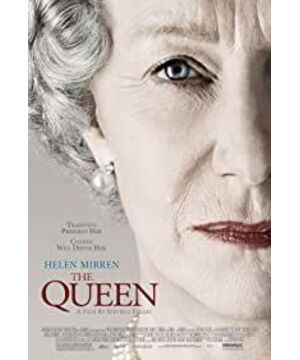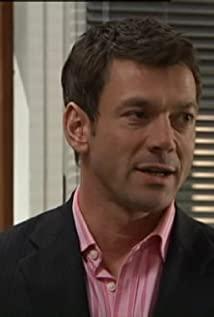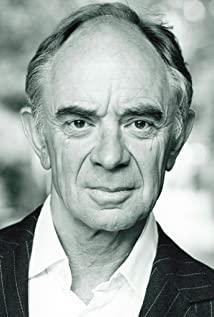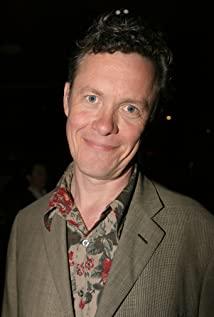One Saturday episode of "A Date with a Movie" prompted me to revisit "The Queen." The praises and accusations against this film in the past have long since passed away, and only the words of Pete Morgan (the screenwriter of the film) are still in my mind. “The only thing to really blame is the public and our desire to point fingers at things we don’t even know.”
Looking back on that year, things were different. Diana's death was destined to become a legend, but after all, the love between Charles and Camilla could not be separated; Blair, who was young and vigorous in the past, is no longer the prime minister of British politics. Only the queen, or the queen, is low-key and cautious.
When the camera resolutely opened the curtains of Queen Elizabeth II's bedroom, did we really see the naked life of the royal family? Did the so-called conspiracy and conspiracy that could not be guessed during the period really never existed? I remember that this film has another evil translation called "The Concubine and the Queen". The two women have become the center of the secret confrontation, but they have abandoned another kind of warmth that permeates the whole film. The second interpretation of the title involves power, morality, and institutions on a large scale. When you think about it, the opposite of "Queen" seems to be Diana on the surface, but in fact it is the vast British people. Blair's speech about "the people's princess" in the film is an example. The "first battle" that Blair fought when he took office was undoubtedly a popular one.
As time passes, how many memory fragments are left in our hearts and have no time to take care of? When yesterday's pain turns into an eternal memorial, the smile of death should rest in peace, right? Concubine Diana will never grow old, but the Queen will inevitably grow old. When the media's lens passes over the Queen's old face again and again, have you ever thought that we are looking at a history spanning two centuries? The haze of war, the light of peace, passed her frown and smile frame by frame.
The heights are so cold.
Just miss Helen Mirren's love performance. In her interpretation of the queen, we quietly realized that, it turns out that the warmth of the royal family also hides the touch of ordinary people. At that moment, the scene of the Queen sitting alone in the mountains and sobbing secretly touched my heart again.
1. Throughout the whole film, the metaphor of "deer" makes a wonderful starting point for the whole story. The queen had mentioned the precious stag more than once in her conversation with her entourage, and made it her hunting object. Then, the scene where the queen saw the stag in the mountains became the most touching part of the whole film. So, when she learned that this stag with fourteen prongs on its antlers had become the prey of others, she couldn't wait to run to see it again, the kind of other kind of absent-mindedness and sentimentality was moving.
2. The loneliness hidden in this section will undoubtedly become another classic portrayal of film history.
It was a noble loneliness.
The Queen sat alone in the mountains, sobbing softly with her back to us. Her heart was filled with the pain of being in a high position, but it melted into the wind of the valley in an instant. The queen turned around and saw the rare stag, standing proudly among the green mountains and rivers, graceful and luxurious, like a born royal. The queen and the stag looked at each other from a distance, becoming two lonely landscapes in the valley.
"You are so beautiful!" From the deer, the queen seemed to see her own shadow. There was an imperceptible sadness in her smile, which was as transparent as a surging lake. Then, the sudden sound of shotguns broke the silence of the valley. "Run, run, run!" At that moment, the Queen's expression was complicated, until she was left alone in the valley again...
3. When the Queen met the new Prime Minister Blair, she mentioned the past, "Meeting Churchill At that time, I was still a little girl." Looking at the Queen's life from this point of view, the joys and sorrows and disputes she experienced are enough to be explored by historians in later generations for a lifetime. And because Diana caused trouble, the entire reception ceremony took only 15 minutes hastily. This later became the talk of Mrs. Blair.
This hasty inauguration ceremony became the talk of the Prime Minister's wife.
4. The film's description of the queen's life is also quite humane. When the news of Diana's death came, the Queen was distressed and first thought of the child. She instructed her subordinates to "remove the TV in the children's room, and don't make the children look sad". And she herself hid in the room and opened the diary. The setting of the bridge "Writing a diary" coincides with the loneliness of the queen. There are too many unspeakable emotions in reality, and she can only be relieved in the diary.
5. "You are too tolerant of them." "They don't deserve you." "They have your blood on their hands." This is the note left by the British people on Diana's wreath cards. When the queen saw these messages, how much room was left for her forbearance? What a dramatic storm for Diana's death! He frowned slightly when his back was facing the camera, but when he turned around, he smiled as always. This is the queen.
This is not the confrontation between the Queen and Diana, but the confrontation between the Queen and the British people.
6. This conversation with the little girl finally erased the haze in the queen's heart.
Queen: "Hello, do you want me to deliver the flowers?" (she points to the long line of wreaths across the aisle)
The little girl shrank her hands subconsciously. The queen was secretly startled, she thought...
Little girl: "This flower is for you." The
queen: "For me? Thank you, thank you very much."
It turned out that the queen's heart needed warmth like that.
7. After the Diana incident, Prime Minister Blair dispelled his doubts and became a loyal supporter of the Queen. Wife Cherie mocked her husband's "Oedipus complex", she sarcastically said, "If your mother is still alive, she is the same age as the Queen this year." In the
film, Blair called the Queen several times to explain his proposal, but was rejected by the Queen.
"Queen" builds an image world that is introverted and warm. The film jumps out of the "spectacle" tendency of contemporary films to pursue dynamic pictures, explosions and special effects to a certain extent, so that the audience can more or less get rid of the addiction to pictures and images. , while focusing on the vagaries of the plot itself. The creators place the immediate drama in the historical context of Diana's death, using direct film material, news, dramatic character performances, etc. to synthesize synthetic creations, which very skillfully outline sensitive topics about the British royal family. The context of the film clearly points to the changes in contemporary British society and the criticism of some of these phenomena. Through the election of Blair, the death of Princess Diana, and finally the reconciliation between the Queen and the people, the royal family and cabinet will represent the British society. And the integration of the people reflects the changes in national mentality in the process of modernization of Britain and even the entire Western society. Emotion replaces reason, tradition succumbs to the trend, personal emotion quickly becomes a torrent representing public opinion under the hostage of mass media, and even affects the process of social development.
On the audio-visual aspect, the creator blends the British-style visual modeling and the accompaniment of string and piano music with obvious sensational effects into a script with a popular drama as the core, thus bringing out a strong localization tendency. By speculating on the daily life of the royal family, an alternative British contemporary genre painting is constructed. The film itself is not as meticulous and analytical as traditional European literary films, but focuses on the stimulation of the heart and emotion, and guides the audience into contemplation through the changes in the words and deeds of the characters, especially Queen Elizabeth II (Helen Mirren). . The director's cleverness lies in dividing the scene into planes with prominent details to build a peaceful but humorous image world, successfully alleviating the tension and conflict caused by the narrative structure, and at the same time dispelling the audience's perception of absolute facts and The expectation of accuracy, while indulging in the linear story development process.
To a certain extent, the success of "The Queen" is due to the creator's clever characterization and Helen Mirren's expressive interpretation. The Queen's calm and restrained, noble and self-respecting temperament is fascinating, and she represents the British society. Inherent traditions and rules. For her, politics is not a show of laughter and scolding, nor is it a noisy group carnival, but a solemn responsibility and a sacred mission granted by God. Even in the face of public pressure and had to accept Blair's so-called "crisis public relations" plan, we still can't see the slightest embarrassment and gloom, and the Queen's noble and elegant demeanor is admirable. The so-called investigation into the abolition of the constitutional monarchy has proven to be nothing more than a whimsical farce, as evidenced by the Queen's public appearance. The heartfelt greetings along the way and the beautiful bouquet of flowers are enough to prove the Queen's existence value. She is a symbol of the fine traditions passed down from ancient times to modern times in England, and is worthy of precious reason and dignity in a frantic and unrestrained democratic society. From this point of view, the so-called Blair (Michael Sheen) protection of the constitutional monarchy is nothing but nonsense. In fact, he had to. The elected Labour Prime Minister, who was high-spirited at first and determined to "modernize" Britain, was subdued by a supreme authority from the moment he met the Queen. It is the most apt and sacred symbol of that ancient kingdom.
As a national symbol, the queen has to suppress her own nature and endure the loneliness that is not understood. The creator deliberately arranged the scene of the queen and the elk encounter, which caused a melancholy feeling of Gu Ying's self-pity. For the Queen, the deer is a symbol of her nature, and the shooting of the elk is an image of the suppression or even extinction of nature, and it is also the hesitation of the constitutional monarchy in the face of modern capitalist democratic society. This is the true meaning of Shakespeare's famous quote at the front of the film: "A head with a crown is hard to rest on." Blair knew that the Diana incident had plunged the people into deep sorrow, and people needed to find an object to vent. The royal family is undoubtedly the best choice, but when the anger is over and the rationality returns, the queen still has its reason and value for existence.
Diana's death has actually become a valuable lubricant between Blair, who bears the hope of public reform in the modernization process, and the Queen, who represents tradition and law. In the process of competition and communication, the two sides finally reached a compromise and understanding. Thus, there is a warm scene of the Queen and the Prime Minister strolling on the lawn of Buckingham Palace. For the creator of the film, in the face of the modern capitalist system, no one is a powerful manipulator, and the "public opinion" created by the mass media means surrender to a certain extent. From this point of view, the tragedy of Diana lies in her reckless actions. The so-called "victim of the royal family" is actually biased by "the majority". As a symbol of the country, the royal family has the responsibility and obligation to exercise restraint Her own words and deeds to maintain the country's image, and this is exactly what Diana could not bear. Her death confirmed the inevitability of compromise from a negative perspective, and it was a process of loss implicit in sourness. In the eyes of Stephen Friers, democracy and freedom are not uncontrolled speculation and unlimited carnival, but nobility and dignity are still the most important core values.
Of course, the flaws in "The Queen" are also very obvious. The director is devoted to the construction of every detail scene, and some plots show abrupt carving marks, such as the scene where the queen meets the elk and the scene where the queen answers the phone in the kitchen. Suspect. In addition, the connection between the plot and the plot of the film is not very perfect, showing a sense of messy patchwork to a certain extent. In terms of character creation, most of the director's focus is on the queen and the prime minister, portraying the two in detail, but ignoring the auxiliary roles of other characters, making the supporting characters completely facial, weakening the performance of the film Power and authenticity. However, on the whole, the flaws of "The Queen" are concealed by Helen Mirren's excellent performance. The director mainly uses medium and close-up shots to describe the characters' activities, so as to point directly to the hearts of the characters, thus creating an ups and downs plot. , and draw the audience's emotions with it, at this point, other shortcomings become insignificant.
View more about The Queen reviews











